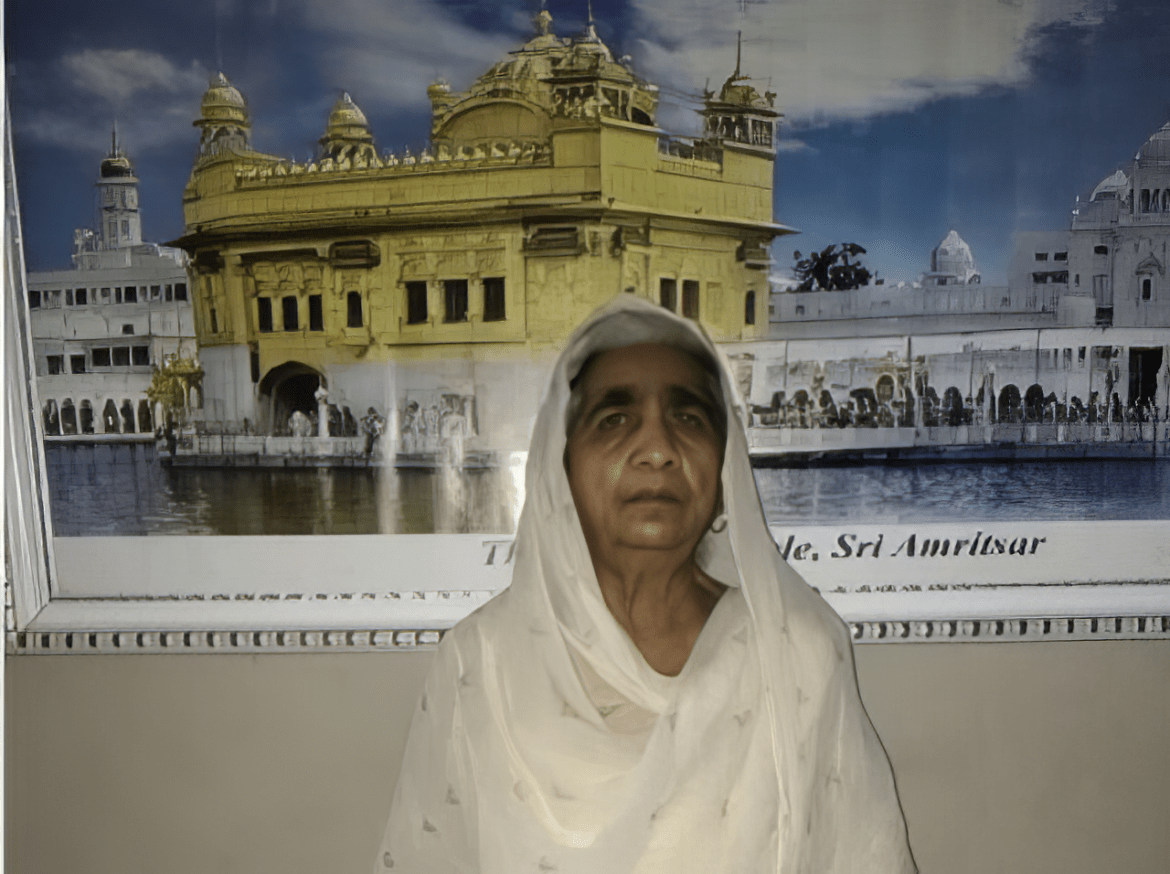AI Generated Summary
- In an interview, the 75-year-old Thukral said, “My father was the epitome of elegance, always attired in fine salwar-kameez, a waistcoat, and a cap.
- Her father, Jaswant Singh, prospered through a triumvirate of business ventures — a flourishing footwear emporium, a chic clothing boutique in Rawalpindi, and a thriving transport enterprise.
- In these dire times, it was Jaswant Singh’s Muslim confidants who emerged as unsung heroes, not only alerting the family in time but also ensuring their passage to a sanctuary.
In the serene Peshawar of pre-1947, Harkaur Thukral’s early years were steeped in opulence. Her father, Jaswant Singh, prospered through a triumvirate of business ventures — a flourishing footwear emporium, a chic clothing boutique in Rawalpindi, and a thriving transport enterprise. These endeavors afforded the Singh family a life of luxury in a palatial bungalow, symbolizing their societal stature.
In an interview, the 75-year-old Thukral said, “My father was the epitome of elegance, always attired in fine salwar-kameez, a waistcoat, and a cap. Our family women traversed in style, borne by palanquins. We were the proud owners of a ‘tapu’, a majestic building in Peshawar.”
However, the harmonious history of their lives began to unravel with the announcement of the Partition of British India in June 1947. As tensions escalated, Peshawar morphed into a perilous land for its non-Muslim inhabitants. In the wake of the Cyril Radcliffe-led Border Commission’s verdict, the Thukral clan found themselves compelled to migrate to India.
Undertaking a minimalist approach, the extended Thukral household embarked on a perilous journey towards the Indian frontier. In these dire times, it was Jaswant Singh’s Muslim confidants who emerged as unsung heroes, not only alerting the family in time but also ensuring their passage to a sanctuary.
Thukral recalls, “We sought refuge in ‘chavni’, a vast abode enveloped in glass, a tranquil interlude in our fraught voyage.” Yet, tranquility was short-lived. The family encountered a harrowing attack at the farmhouse. “Bullets rained, shattering glass, instilling chaos. Amidst the pandemonium, my grandmother shielded the children under a bed. Miraculously, we survived unscathed.”
The family’s odyssey to Amritsar was fraught with further tribulations, including Jaswant Singh’s arrest near Rawalpindi station. Despite these adversities, the family eventually set foot on Indian soil.
While Thukral’s kin progressed towards Mumbai, she, alongside her mother and grandmother, lingered in Amritsar, yearning for Jaswant Singh’s emancipation. The transition from affluence to austerity was stark, as Thukral poignantly recounts, “From the lap of luxury, we found ourselves queuing for sustenance at the local gurudwara.”
Incarcerated in Rawalpindi prison, Jaswant Singh endured hardships.
Upon Jaswant Singh’s release, the family reunited and ventured to Mumbai, where their fortunes took a favorable turn. Nestled in a sprawling sea-facing apartment in Colaba, they commenced a new chapter. Instrumental in their resurgence was the substantial compensation for their forsaken property in Pakistan.
Reflecting on the tumultuous epoch, Thukral acknowledges her family’s relative fortune amidst the pervasive turmoil. She shares heartrending anecdotes of despair and resilience, yet her narrative is devoid of bitterness.




